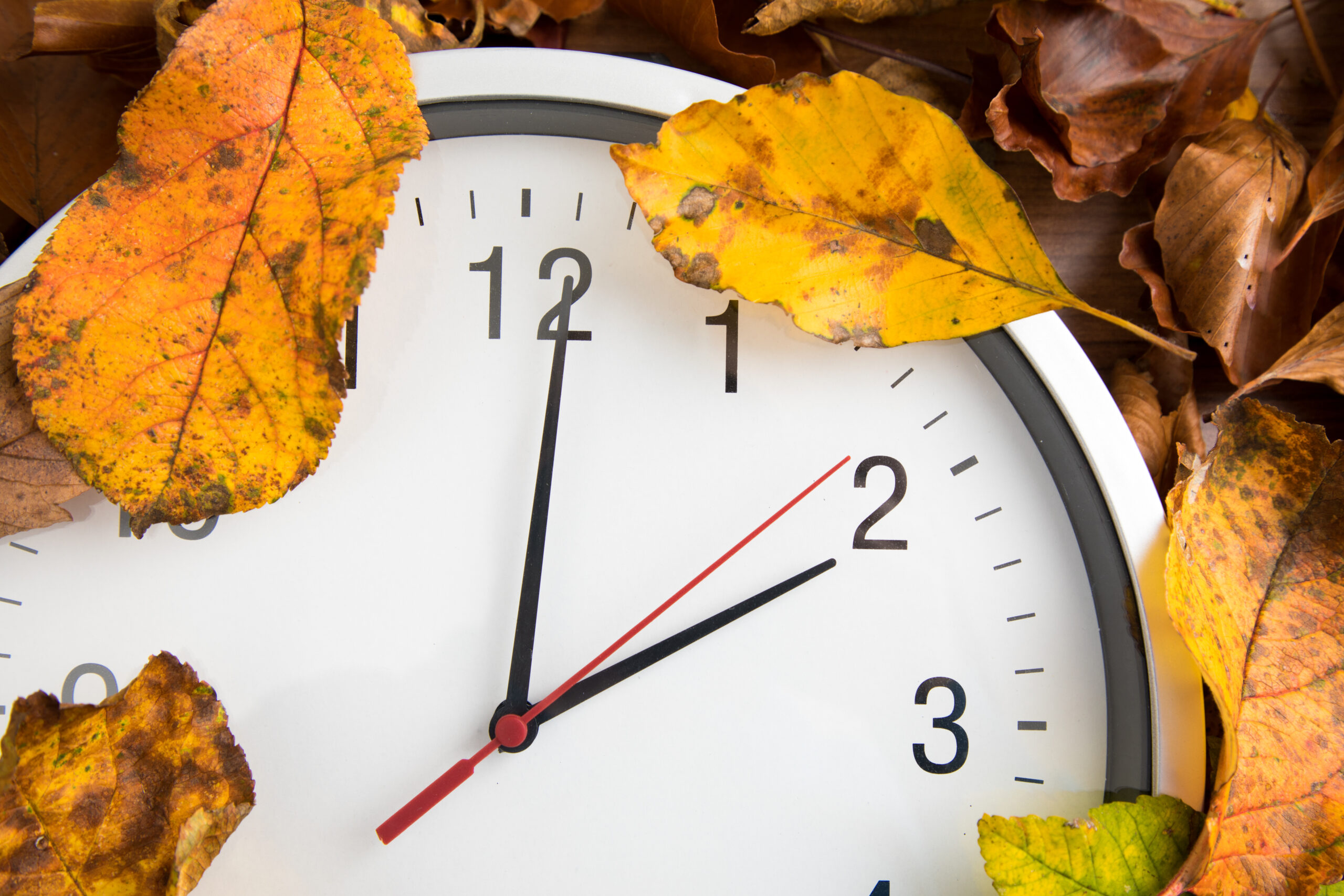Have you ever felt the jarring jolt to your sleep when the clocks roll back? Daylight Saving Time (DST) is like experiencing jet lag without the joy of travel, and its end can affect more than just your sleep. As we approach the end of DST, when we set our clocks back an hour, understanding the impact on our bodies and learning strategies for a smoother transition is crucial.
The Hidden Impact of Daylight Saving Time
DST doesn’t just rob you of sleep; it can significantly affect your health and decision-making. Studies highlight a startling 24% surge in heart attack rates after the “spring forward” and a calming 21% reduction when we “fall back,” notes sleep expert Matt Walker, author of Why We Sleep: The New Science of Sleep and Dreams. The ripple effect continues, influencing traffic accidents, workplace mishaps, and even mental health issues, illustrating DST’s far-reaching impact.
But while falling back doesn’t have the severe consequences as when we start DST, there is still an impact on your circadian rhythms, the 24-hour cycles that are part of the body’s internal clock.
It’s not just your sleep schedule that runs on a circadian rhythm. Many of your internal organs have their own clock that turns off and on with your circadian rhythm. Changing that schedule not only impacts your sleep, but also things such as when it’s best to eat your meals for proper digestion, your mood, how you learn and work, and when to best exercise.
“Almost each and every one of our cells contains one of these clocks, and each is programmed to turn on or off thousands of genes at different times of the day or night,” Dr. Satchin Panda writes in his book The Circadian Code: Lose Weight, Supercharge Your Energy, and Transform Your Health from Morning to Midnight. “We are finding that almost every organ has its own clock, and in each organ genes turn on or off, affecting protein production levels at predictable times of the day.
“When these daily rhythms are disturbed for as little as a day or two, our clocks cannot send out the right messages to these genes, and our body and mind will not function as well as we need.”
Mastering Your Internal Clock: Tips to Navigate the End of DST
Preparing for the time change doesn’t start on Sunday morning; it begins on Friday night. Here’s how to outsmart your internal clock:
Gradual Transition:
- Stamina Lab Sleep Science Coach Lauren Duffell recommends a gradual shift. If you normally sleep at 11 p.m., push it to 11:30 p.m. on Friday, and wake up at 7:30 a.m. instead of 7 a.m. Repeat this half-hour shift on Saturday to ease your body into the new schedule.
Sunday night . . . it’s back to your normal 11pm bedtime.
“For many, you may find that you’re naturally waking up earlier in the morning after the time change for fall because of the light,” Courtney Bancroft, a clinical psychologist and sleep specialist based in New York City said. “If you find yourself naturally waking up, get out of bed for the day. This will help your sleep drive shift to become ‘hungrier’ for sleep earlier that evening.”
Morning Sunshine: Your Natural Alarm Clock:
- Sunlight is nature’s synchronizer for your body clock. Dr. Andrew Huberman of Stanford School of Medicine emphasizes the importance of morning light. Step outside within the first hour of waking up, and repeat in the late afternoon. This light exposure not only energizes you but also sets a timer for your sleep hormone, melatonin.
“View sunlight by going outside within 30-60 minutes of waking. Do that again in the late afternoon, prior to sunset,” according to Dr. Huberman. “There’s a healthy rising tide of cortisol that happens early in the day… it makes you feel alert, it makes you feel able to move and want to move throughout your day for work, for exercise, school, social relations etc.”
“But it also sets off a timer in your nervous system that dictates when a different hormone, called melatonin, which makes you sleepy, will be secreted.”
Quality Sleep Before the Shift:
- Just as with preparing for a flight, ensure you’re well-rested before the change. Quality sleep can help mitigate the effects of the time shift on your body.
Leveraging Your Environment for a Better Adjustment
Control Light Exposure:
- Light tells your body when it’s time to wake up and wind down. Dim your lights in the evening and avoid screens before bedtime to signal to your body that it’s time to relax. In the morning, open those curtains wide or step outside to bask in natural light.
Establish a Routine:
- Stick to a regular schedule for meals, exercise, and other activities. Consistency helps your body find its rhythm more quickly after a time change.
Adapt Your Exercise Routine:
- Engage in light exercise in the morning to boost your mood and energy. However, avoid vigorous workouts close to bedtime, which can disrupt your sleep.
Conclusion: Embrace the Change
The end of DST doesn’t have to be a struggle. By understanding how the time change affects your health and implementing these expert strategies, you can minimize the impact on your body’s internal clock. Start preparing a few days in advance, soak up that morning sun, and maintain a consistent daily routine. Your body and mind will thank you.


